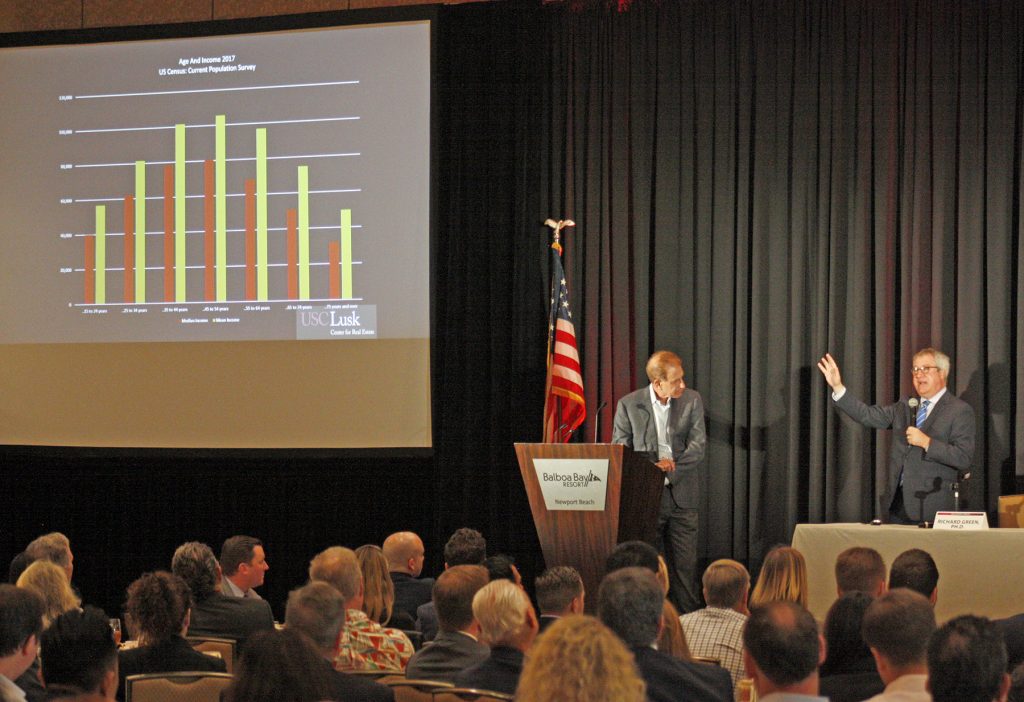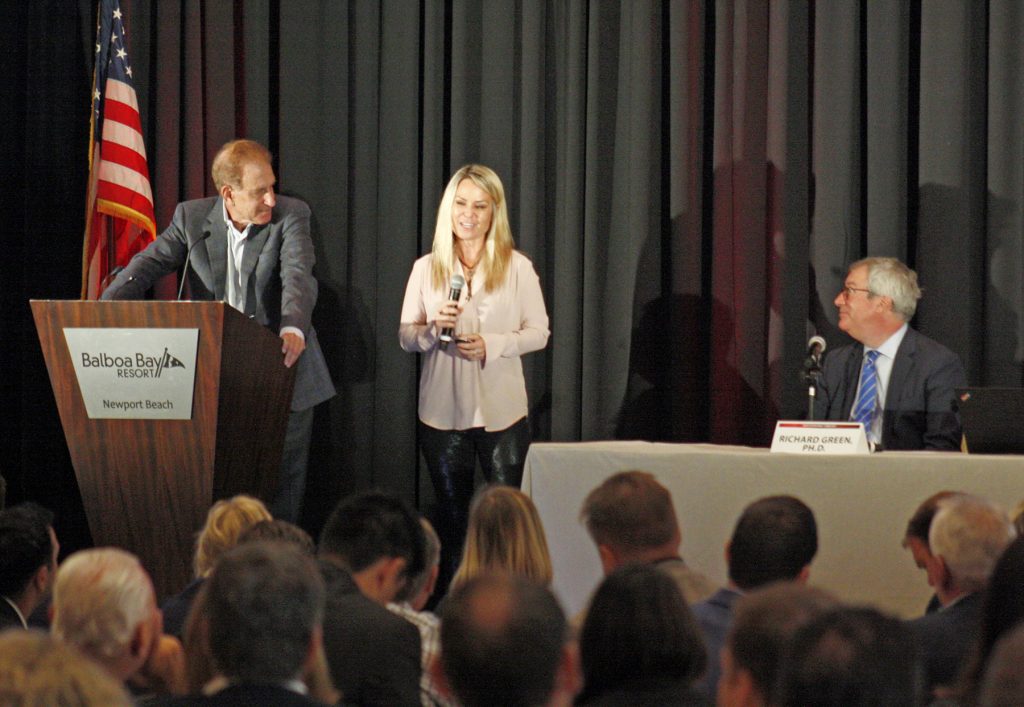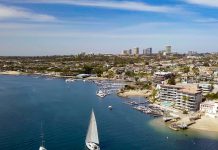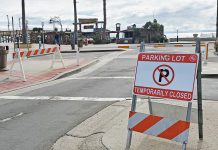
— Photo by Christopher Trela ©
Could another recession be on its way?
Some experts at the Newport Beach Chamber of Commerce’s annual Economic Forecast luncheon, held at the Balboa Bay Resort on Oct. 11, think a recession is coming, but Orange County will escape much of the economic damage.
Hosted by Orange County Business Journal Publisher and CEO Richard Reisman, the panel of experts included Richard Green, Ph.D, professor in the Sol Price School of Public Policy and the Marshall School of Business, Lusk Chair in Real Estate; Selma Hepp, Chief Economist and Vice-President of Business Intelligence, Pacific Union International, Inc.; and Barry Altshuler, Board Member, California Apartment Assoc.
“Let’s look at specific things to be worried about or be encouraged about,” said Green. “The new NAFTA was a a great relief to me, because it is basically the same thing as the old NAFTA, and I think NAFTA is good. A trade agreement made me very happy. Rent control is something I worry about. I am pretty sure it will discourage housing construction, and one of the most important components of a business cycle is housing construction.”
Green then opined that “I think we’re going to have a recession, but I don’t think it will be a bad one because there is a difference between now and 10 years ago.”
Green referenced a chart that showed net worth to disposable income.

— Photo by Christopher Trela ©
“The last time we had a peak was in 2008, and the time before that was in 1999. Our current peak is beyond those two peaks. Where does wealth come from? Cash flow. Where does cash flow come from? Spending. Where does spending come from? Income. This missile line of net worth which reflects equity values is something that concerns me. It is inevitable that there will be a correction. If you look at the previous peaks, they have preceded recessions. I am keeping a close eye on this.”
Green noted that “equities are overvalued. I am not selling like crazy, but as far as the retirement account, all my money is in cash. There needs to be a correction. We recently saw the start of it. It matters to us on the West Coast, where people are compensated with equity.”
One interesting factor specific to America is in how much we save, and spend.
On a chart showing retail spending by country, Green noted that the average American spends $14,624, but the average German spends $6,323 per year.
“Germans are 90 percent as rich as us, but spend half as much,” said Green. “They save. Americans are terrible at saving. We are a more optimistic country. You think ‘I’Il buy that TV because I’ll make more money to pay for it.’”
“Germans love investing in the U.S., in commercial real estate, in the stock market. They need to trade euros for dollars. We send Germany assets in exchange for them sending us goods. What happens if we close avenues of trade? You are choking off capital. Same with any country with which we have a deficit. America has to rely on its own savings, but in order to get Americans to save more you have to compensate them more, which means interest rates have to go up. If we really screw up trade, interest rates will go up, and that makes me nervous. Look to see wat happens with the deals with Europe and China. Cutting off trade cuts off capital flows.”
Among the other economic factors Green discussed were age and income.
“People over 65 will increase by 50 percent, those 45-64 will fall. The economy will have smaller numbers of people making good money, so we need to worry about that now.”
Selma Hepp addressed the 2019 state and local outlook, and her forecast included a recession by 2021. Unemployment has gone down over the past six years, but the number of job ads has remained stable, meaning fewer people to fill those jobs. She did show solid growth of the middle class in Orange County, with current median income of $85,400 and income growth at a steady three percent.
Barry Altshuler briefly discussed the Proposition 10 rent control initiative and cited reasons why he and others are against Prop 10 and its economic impacts.
For more information, visit NewportBeach.com.




